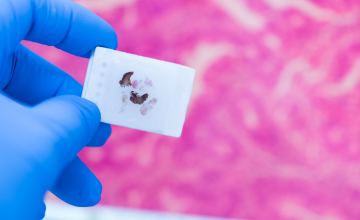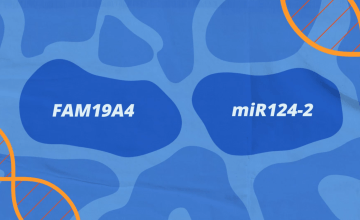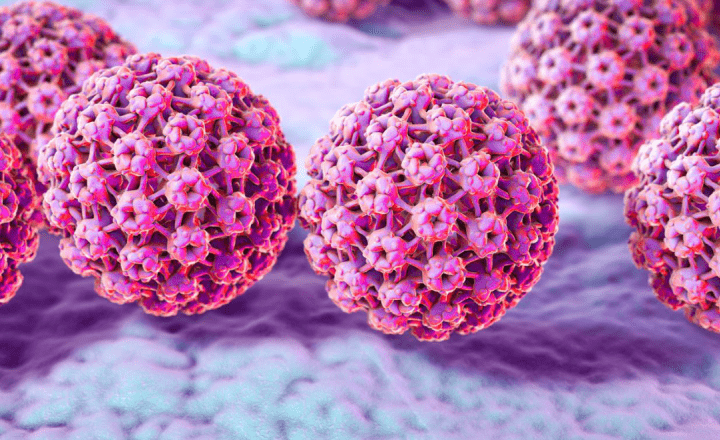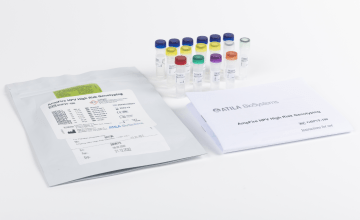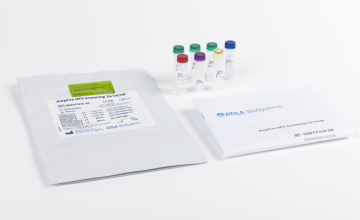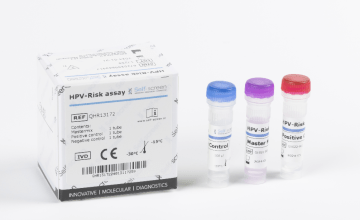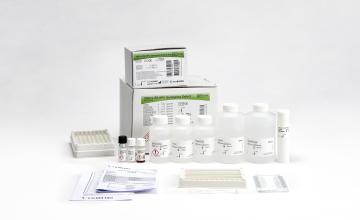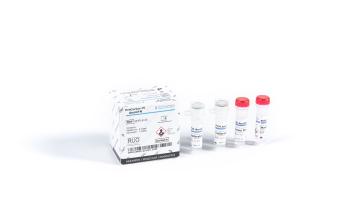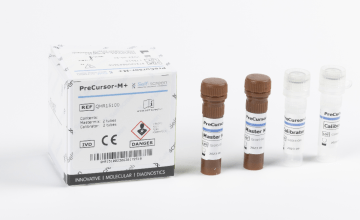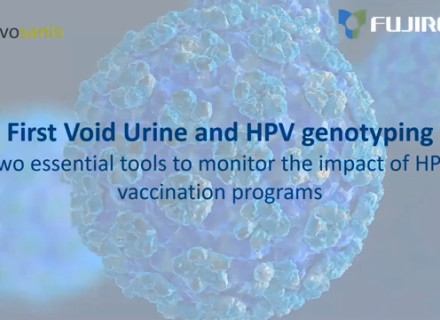Clinical validation of the PreCursor-M AnoGYN test: Tailoring treatment of anal and vulvar cancer precursors
By Rebecca Millecamps, Fujirebio
A major challenge for the correct implementation of the anal cancer screening guidelines is the generally limited availability of High-Resolution Anoscopy (HRA) infrastructure for referral of patients with abnormal screening results.1,2 An improved selection of HSIL patients that do require treatment therefore appears to be desirable. mRNA detection or p16/Ki-67 staining could be considered. Also, the determination of host cell methylation markers from anal swabs and/or histological material of anal dysplasia could be of importance to improve the selection of HSIL patients who require treatment.3-6
Studies have identified several cellular genes as potential markers for anal dysplasia.7-10 The ZNF582 gene yielded an area under the curve (AUC) of 0.88 as marker for AIN3+ detection and is the most promising candidate so far, followed by ASCL1 (AUC 0.86) and SST (AUC 0.87). Increased methylation levels in these host cellular DNA markers have been associated with progression from normal tissue to anal precancerous lesions to ASCC.11 These methylation markers were determined in histological samples. Similar studies on anal swabs are ongoing.12,13
It is currently being investigated whether methylation markers ASCL1 and ZNF582 can predict the spontaneous regression of higher-grade anal intraepithelial neoplasia (AIN) as a molecular biological marker.14 Study participants are not treated but closely monitored during 24-months of follow-up with six-months visits including cytology, and HRA with biopsies. An update on this ongoing active surveillance cohort study in HIV+ men (MARINE study) was presented recently at the International Anal Neoplasia Society (IANS) Scientific meeting. 184 participants have been included and 32 have completed the total follow-up of the study. Biomarker analysis is currently being performed in baseline biopsies.15
Clinical validation of the ASCL1 and ZNF582 methylation-specific test, currently already available as the Research Use Only (RUO) PreCursor-M AnoGYN assay, is ongoing in two nationwide prospective studies. In April 2025 Dr. Renske Steenbergen has been awarded the KWF PPP grant for her research "Validation of the PreCursor-M AnoGYN test (RUO) for cancer risk stratification of high-grade anal and vulvar precancer lesions (VAPAV)". The grant will be used to increase knowledge on whether the PreCursor-M AnoGYN test (RUO) can improve treatment guidance for affected patients, for both anal cancer precursors and vulvar cancer precursors.16
The final goal is to reduce overtreatment of anal and vulvar cancer precursor lesions, with only test-positive patients requiring treatment, while test-negative patients will benefit from surveillance or more conservative treatment.16
References:
- IANS consensus guidelines for anal cancer screening. Int. J. Cancer. 2024;154:1694-1702.
- ASCCP Practice Advisory anal cancer screening_final.
- Spindler L, et al. Société Nationale Française de Colo-Proctologie. Screening for precancerous anal lesions linked to human papillomaviruses: French recommendations for clinical practice. Tech Coloproctol. 2024 Jan 10;28(1):23.
- Cohen CM, Clarke MA. Anal Cancer and Anal Cancer Screening. Clin Obstet Gynecol. 2023 Sep 1;66(3):516-533.
- German Austrian Guideline on Anal Dysplasia and Anal Cancer Screening in People living with HIV. Short Title: Anal Cancer Screening in People living with HIV. AWMF-Register-Nr.: 055/007 Version 2.0
- Stephen E. Goldstone: Methylation markers in anal swab specimens might identify those at greater risk for anal cancer over standard cytology screening. J Infect Dis. 2024 Dec 23:jiae628.
- Phillips S, Cassells K, Garland SM, et al. Gene methylation of CADM1 and MAL identified as a biomarker of high grade anal intraepithelial neoplasia. Sci Rep 12, 3565 (2022).
- Lorincz AT, et al. Methylation of HPV and a tumor suppressor gene reveals anal cancer and precursor lesions. Oncotarget. 2017; 8: 50510-20.
- Chaiwongkot A, et al. Human papillomavirus 16 L1 gene methylation as a potential biomarker for predicting anal intraepithelial neoplasia in men who have sex with men (MSM). PLoS One. 2021; 16: e0256852.
- van der Zee RP, et al. DNA methylation markers have universal prognostic value for anal cancer risk in HIV-negative and HIV-positive individuals. Molecular oncology. 2021; 15: 3024-36.
- van der Zee RP, et al. Cancer Risk Stratification of Anal Intraepithelial Neoplasia in Human Immunodeficiency Virus-Positive Men by Validated Methylation Markers Associated With Progression to Cancer. Clin Infect Dis, 2021; 72: 2154-63.
- Dias Gonçalves Lima F, et al. DNA methylation analysis on anal swabs for anal cancer screening in people living with HIV. J Infect Dis. 2024 Dec 24:jiae627.
- Valentine M. Ferré. Poster_CROI_Methylation_2023-133209635219741996
- Gonçalves Lima F, et al. DNA Methylation Analysis to predict Regression of high-grade anal Intraepithelial Neoplasia in HIV+ men (MARINE): a cohort study protocol. BMJ Open. 2022; 12: e060301.
- International Anal Neoplasia Society Scientific Meeting – Poster Poster Detail, 1747656833.pdf
- UMC Amsterdam website - Validating the PreCursor-M AnoGYN Test: Tailoring Treatment of Anal and Vulvar Cancer Precursors | Amsterdam UMC

